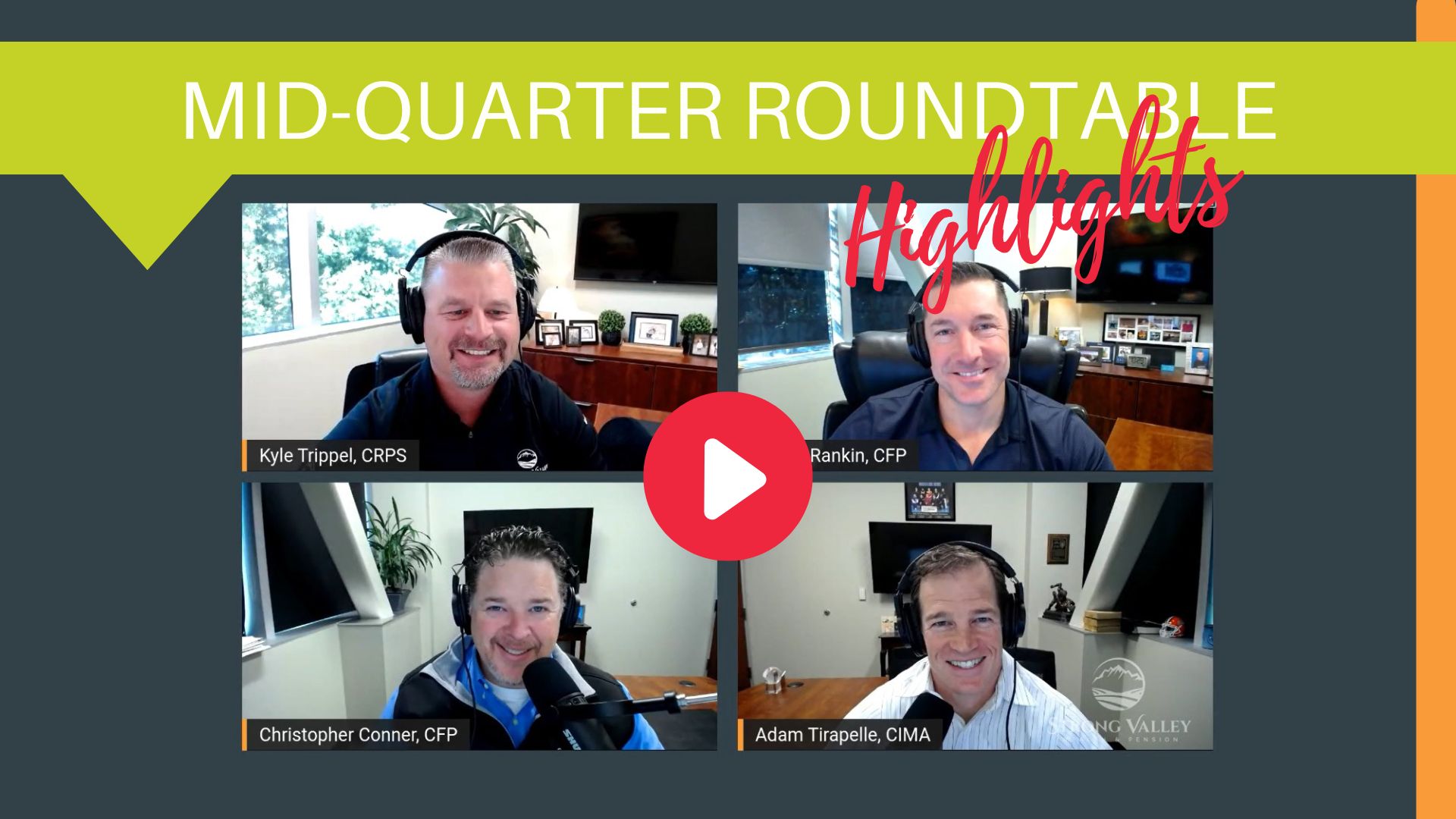You are now leaving the Strong Valley Wealth & Pension, LLC ("Strong Valley") website. By clicking on the "Schwab Alliance Access" link below you will be entering the Charles Schwab & Co., Inc. (“Schwab”) Website. Schwab is a registered broker-dealer, and is not affiliated with Strong Valley or any advisor(s) whose name(s) appears on this Website. Strong Valley is/are independently owned and operated. Schwab neither endorses nor recommends Strong Valley. Regardless of any referral or recommendation, Schwab does not endorse or recommend the investment strategy of any advisor. Schwab has agreements with Strong Valley under which Schwab provides Strong Valley with services related to your account. Schwab does not review the Strong Valley website(s), and makes no representation regarding the content of the Website(s). The information contained in the Strong Valley website should not be considered to be either a recommendation by Schwab or a solicitation of any offer to purchase or sell any securities.

Too often during uncertain times, we inadvertently compare ourselves to the people around us – and that leads us to make financial mistakes. Consider looking at the big picture instead to make sure your investment helps you towards your true life goals. This article helps with examples that clarify changing to a bigger perspective.

Too often during uncertain times, we inadvertently compare ourselves to the people around us – and that leads us to make financial mistakes.
In his book Predictably Irrational: The Hidden Forces That Shape Our Decisions, Dan Ariely remarks, “We don’t have an internal value meter that tells us how much things are worth. Rather, we focus on the relative advantage of one thing over another, and estimate value accordingly.” Later he adds, “We not only tend to compare things with one another but also tend to focus on comparing things that are easily comparable.”
In other words, we use completely irrelevant benchmarks to gauge our success and make decisions. We compare the car we drive or clothes we wear to our siblings. We draw comparisons about how our children act relative to the neighbors.
None of these comparisons makes rational sense. Instead they take the common shortcut and follow things easily comparable to a simple, concrete – and irrelevant – answer.
Simple comparisons also often gloss over details. In another example, you lament that you refinanced your mortgage at 4% interest while your brother got 3.75%. The interest rate provides a simple comparison and misses the big picture.
Digging deeper, we find that your brother paid closing costs and you didn’t. The monthly savings of that 0.25% difference covers the closing costs after 10 years but your brother only wants to stay in the home for five. The lower rate ends up costing more.
Nowhere is relative benchmarking more prevalent and more irrelevant than in investing. How you perform against the Standard & Poor’s 500 bears little on your financial well-being.
If you are in retirement and have a properly structured portfolio, you probably underperformed the S&P 500 since the onset of COVID and maybe have outperformed YTD so far in 2022. Big deal. The S&P 500 is not trying to accomplish with its money what you try to accomplish with yours.
For instance, if you ever owned a business, you understood that revenue and profits rise and fall. It is not always a consistent upward trajectory. You continue running your business because of the lifestyle it provides, and you make decisions that ensure continuity. Few owners run their business to maximize returns at all times – those that do are often hung out to dry when things get rough.
Consider your retirement portfolio as your own small business, comprising ownership in thousands of real, functioning businesses.
If you strive to maximize gains in all the businesses at all times, you eventually get burned. Not to mention that the business (portfolio) performance of the bicycle shop guy down the street bears no relation to that of your bakery.
That comparison makes no sense. Your portfolio provides you with the lifestyle you want.
Blindly comparing your portfolio to an arbitrary benchmark – especially over short periods – tells you nothing about whether your investments help you toward your life goals. There’s nothing less relevant.



